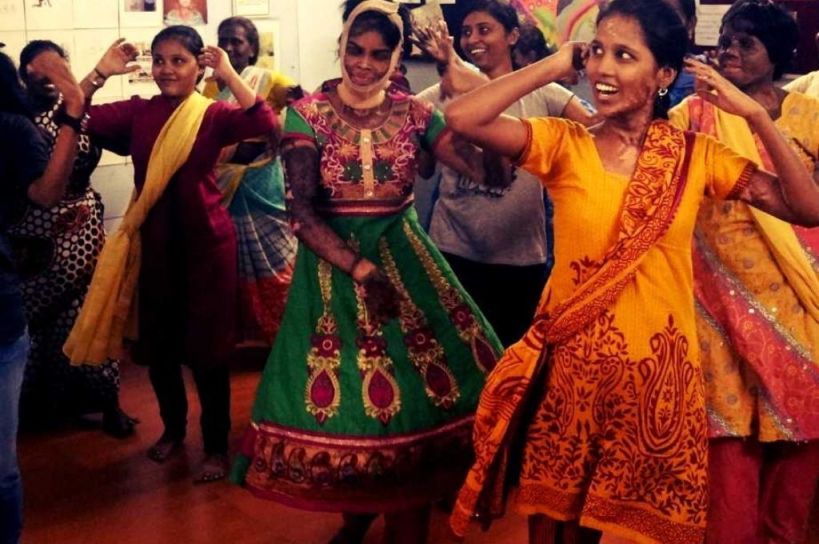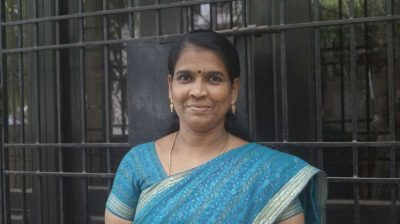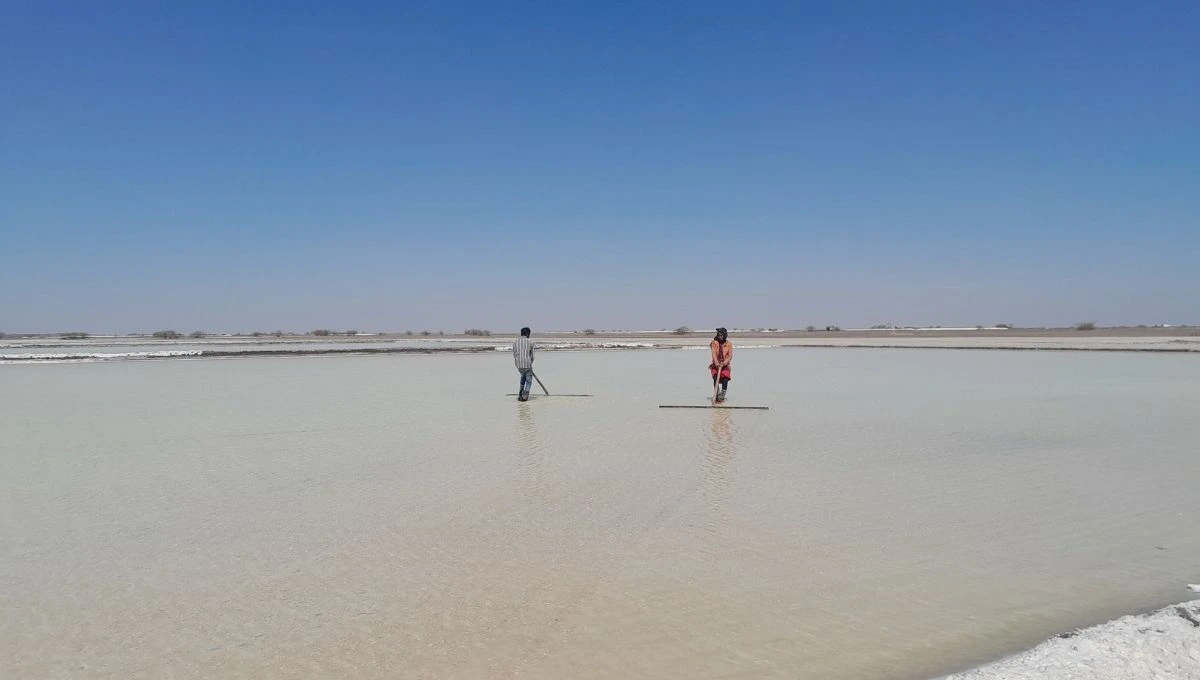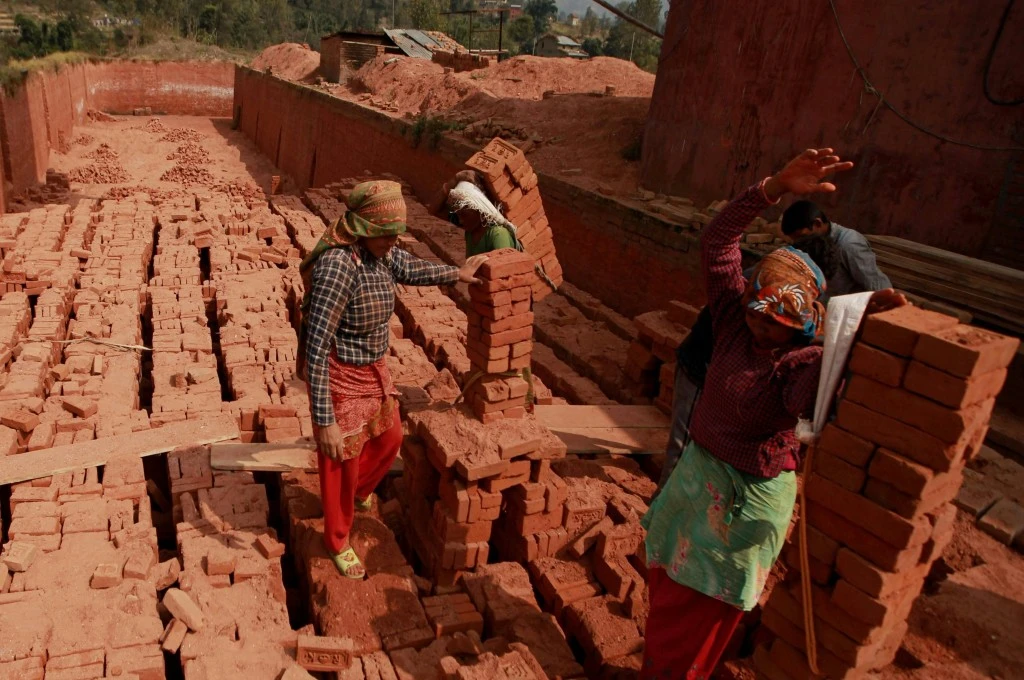My name is Jayanthi and I am a counsellor and psychosocial manager at the International Foundation for Crime Prevention and Victim Care (PCVC). I work in the Vidiyal team, where we focus on burn survivors of domestic violence.
In Tamil Nadu, where I live and work, burn survivors are akin to acid attack survivors in other parts of the country. Self-inflicted burns, as a consequence of severe domestic abuse, are not uncommon. In about 70 percent of the cases that are reported, survivors will record the burns as an accident. However, we can usually assess the situation by the nature of the injuries and burns, and infer that they are much more likely to be self-inflicted burns. With time, our clients’ trust grows and they confide in us and tell us about their experience with domestic violence and abuse.
Our approach is to try to understand what pushed a woman to take such a step and to let her know that we do not blame her for the incident. This is especially important because most burn survivors experience a lot of blame and shame from the doctors and nurses that treat them. For example, if a patient cries out in pain while her burns and wounds are being treated, nurses may say, “Did you not expect this when you did this to yourself?” However, it is crucial to understand what led a woman to self-inflict those burns. There is a story behind each of those self-inflicted wounds.

As a counsellor, I must recognise this pain and anguish. My own personal experience as a domestic violence survivor also allows me to empathise with their situation. Many years ago, I filed a police complaint against my husband for domestic violence. Dr Prasanna, the founder of PCVC, was assigned as my counsellor. She was the first person who truly made the effort to understand my perspective. This had a huge impact on my experience as a survivor and I take the same approach with my clients.
9.00 AM: I usually start my day with an affirmation session with a group of six to eight clients. During these sessions, they focus on their short-term and long-term goals. This helps them to ground themselves and take stock of their progress.
Burn survivors experience pain at every stage of their recovery.
Burn survivors experience pain at every stage of their recovery. The pain is particularly severe in the mornings, as they have been stationary for an extended period. Thus, it is critical to start the day off on the right note. In these sessions, I ask clients to look back and track their progress and growth during the period of recovery. It could be small but substantial steps such as when they find themselves sleeping better, experiencing less resistance when they move, or when they find their wounds healing better. Reflecting on what has changed from one day to the next, week on week, and gradually every month, allows survivors to track their progress and motivate themselves to continue with the process of recovery and healing.
It is important to conduct these sessions in groups as it fosters a sense of community among survivors. Not only can they track their own progress and growth, but they also realise that other women have had similar experiences and are on the road to recovery. This creates a sense of solidarity.
Nowadays, we conduct these sessions online. Due to the COVID-19 pandemic, we had to close our residential recovery and healing centre, and work with our clients via phone calls and video sessions.


10.30 AM: The next session that I am conducting today is also a group session—on the subject of domestic violence. It is part of a ten-session module through which I help clients understand that there are many kinds of violence and abuse that are normalised and perpetuated in our society. A lot of times, women do not realise that their experiences count as violence. Hence, it is important for them to articulate that what they experienced and went through was violence.
Through these sessions, I motivate my clients to search for solutions.
I always see an immense change in my clients between the first and the tenth sessions. They are able to articulate and label acts of violence and acknowledge that what they experienced was wrong and that they don’t have to put up with it. Through these sessions, I motivate my clients to search for solutions. Some may decide not to go back to the house or be with the person who perpetrated the violence. Others may choose to stay on in those relationships but will negotiate and define new limits or commit to raising their children differently.
1.30 PM: In the afternoons I conduct individual counselling sessions. Before the pandemic, I would visit some clients at their homes after being discharged from the hospital or the recovery and healing centre. It is important to track their well-being and progress and these sessions help me do just that.
Most of these interactions have also moved online. Today I am speaking with a client who has spent many weeks laying in her bed at home, covering her wounds and scars with a large towel. She has been terribly dejected because her children refuse to come near her. In previous sessions, I have struggled to encourage her to dress in loose clothing such as a t-shirt or a nightgown, as I feel this may make a difference.
I am speaking to her over a video call and when she joins the call, I notice that she is wearing a nightgown. I am thrilled because this is a huge step in her recovery. She tells me that after she decided to change into a nightgown a few days ago, her children came over to her on their own and asked her if she was feeling better since she had gotten out of bed and changed. They had even slept next to her at night.
It is very important to encourage clients while they are on the path towards self-acceptance.
Small changes like these have a powerful impact on survivors. It reinforces their morale and motivates them to persist. It is very important to encourage clients while they are on the path towards self-acceptance. This can be done in many ways and it can include small actions such as dressing up like they used to before the incident, going to public places, and so on. Before the pandemic hit, we organised social outings twice a month. We would take clients to the beach or the mall. Usually burn survivors are made to stay at home, hidden by their family members. This affects their sense of self and morale. Therefore, occupying public spaces is integral to their recovery. It helps them realise that they too can go out and enjoy themselves. Initially, they may cover their faces or the areas that are scarred with a scarf to avoid glances, questions, and so on. But with time, their confidence and self-acceptance grow and they no longer feel the need to cover their burns and scars.
Building this sense of self-acceptance has been challenging during the pandemic. Since we cannot have these group outings, we do our best to motivate our clients through the video sessions. I spend a lot of time talking to them and convincing them to get up from their beds, dress up, and move around. I also talk to their families and ask them to take my clients outdoors—to visit a nearby shop or go to the temple.
3.30 PM: I visit one of my clients, Sujatha* at her home, accompanied by one of our wound care therapists. Sujatha’s wounds need special attention and I am concerned that her family may be neglecting her needs.
Under the pretext of needing privacy to attend to Sujatha’s wounds, I ask her husband to leave the room for a few minutes. When we are alone with Sujatha, she tells me that the situation at home is quite tense. Now that she is back, her husband expects her to do all the housework, which she cannot do right now. They have had some arguments and I am concerned that the situation could escalate. I help Sujatha memorise our helpline number, in case she needs to reach out to us for anything.
I ask her about the injury again and try to understand whether domestic violence was involved. I reiterate that whatever she shares with us will be confidential and that we will not take any action against her will. I clarify that we value her reasons for not leaving the household and that we are here to ensure her safety. I try to get to the root of her concerns, such as a fear of retaliation by her husband or concern over the future of her children, and lay out the options that we can provide to address the same.
Before I head out, I make it a point to thank Sujatha’s husband for taking care of her. I am mindful of being polite and appreciative when I speak with him, to avoid antagonising him in any way. Over the course of the pandemic, we have been providing grocery kits to families in need and I hand this over to him. This is one way in which we ensure that our clients’ families do not prevent us from visiting them.
4:30 PM: As I make my way home, I listen to some music and start disconnecting from my interactions with my clients over the course of the day. With time, I have learnt to draw a boundary between my personal and professional life and today I am better at maintaining an emotional distance from my clients. By doing so, I can counsel and guide them more effectively. It is not an easy journey and there have been times when I have felt like there is no end in sight to the ways in which a woman can be hurt. But I have come a long way from wondering how a woman could survive in the world and care for her children if she left an abusive marriage. And this has been possible because my workplace and my family have both supported me in this journey.
*Name changed to maintain confidentiality.
As told to IDR.
Know more
- Read these guidelines for psychosocial care for women burn survivors.
- Learn about how individuals can support people who are in home quarantine with an abuser.
Do more
- Reach out for support if you or anyone you know is going through domestic violence.
- Create and offer employment opportunities to survivors of violence.




